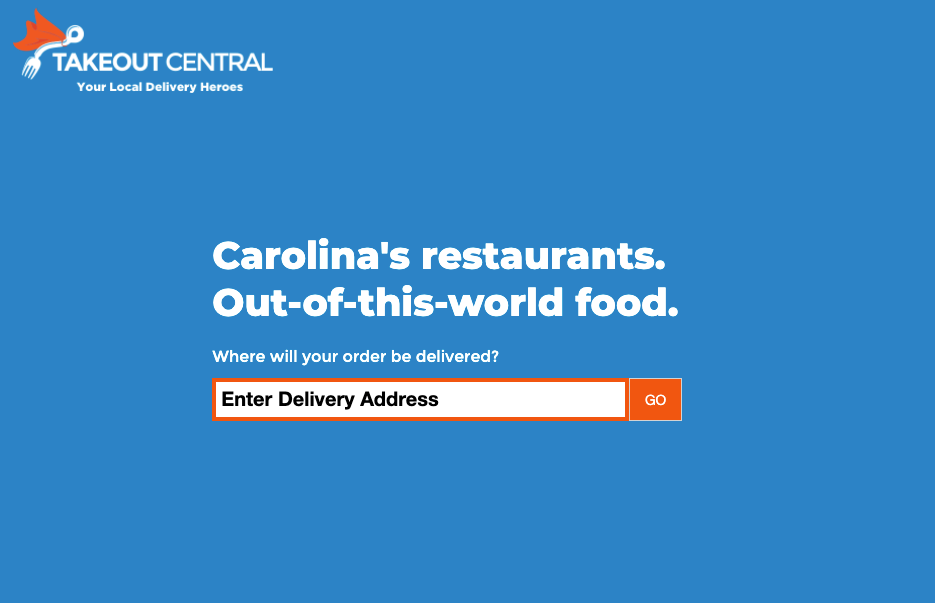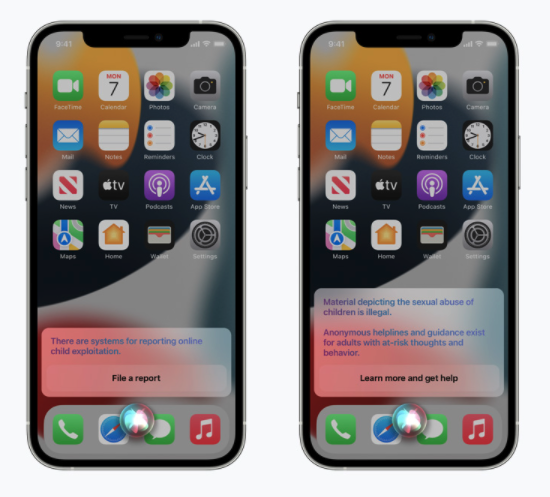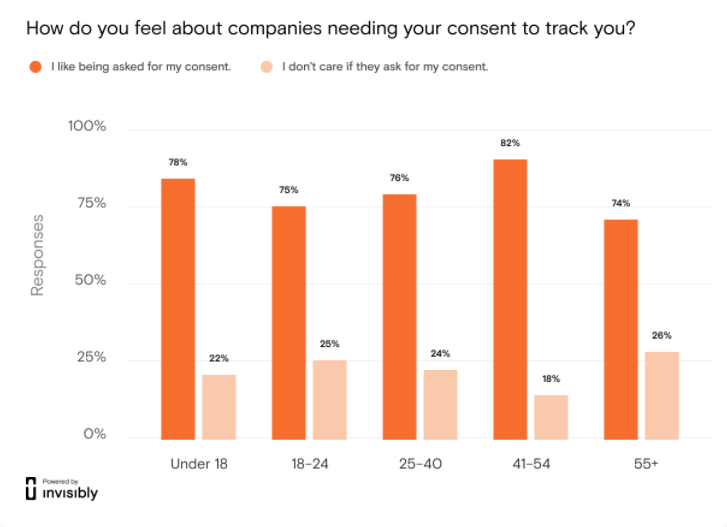75% Want Consent, Delivery Winners & Losers, Apple Risks Privacy Reputation

Google Picking Winners and Losers in Food Delivery
Google is beset by antitrust critics on all sides. In its defense Google often argues its decisions are for the benefit of consumers – given that antitrust analysis tends to focus on consumer harm. (This is partly why the FTC suit against Facebook was initially dismissed: failure to show consumer harm.) But a revealing story in Fast Company shows the impact of Google's market power on local and regional food delivery companies: "We were growing at a healthy rate, anywhere between five and 20% per year,” says Takeout Central’s Garrison. That growth stalled in 2018, as the national services expanded into Takeout Central’s markets." Google's deep integration with a few national companies (e.g., DoorDash and Uber Eats) appears to be crowding out local and regional players. It looks very much like a case of Google picking winners and losers.

Our take:
- Antitrust law shouldn't be used to freeze the market. Yet, here, not being offered in the Knowledge Panel/Profile = significant business disruption.
- Local delivery companies give restaurants better deals and are generally more ethical in their business practices than the nationals.
- This is a complex problem. But, as presented, it seems Google market power is adversely affecting competition, which will eventually harm consumers.
Apple's CSAM Plan Undermines Privacy Image
Apple has been aggressively marketing privacy as a core feature of its devices, the iPhone in particular. Now a controversy over image scanning to prevent spread of child sexual abuse material (CSAM) is threatening Apple's carefully constructed privacy messaging. Apple this past week revealed an expanded a plan to "help limit the spread of CSAM online" and "provide valuable information to law enforcement on collections of CSAM in iCloud Photos." The plan also involves some on-device detection of CSAM images. CSAM scanning of images in the cloud (or being uploaded) is already widespread. It's the on-device part that's controversial and being criticized as a backdoor that will lead to broader surveillance and privacy abuse. Apple critics include EFF; defenders include AppleInsider. Vox's Recode has another good piece.

Our take:
- Nobody objects to improving child safety and cracking down on child abuse.
- What's at stake is whether Apple's decision has made our devices more surveillance-friendly. Yes, it appears.
- It's unclear how many consumers are aware of the debate. Publicity could undermine Apple's privacy rep. The company will likely be compelled to retreat.
75% of Consumers Say 'Get My Tracking Consent'
A recent consumer survey from Invisibly finds, somewhat predictably, that the vast majority (70% - 75%) of consumers don't want to be tracked for marketing purposes. Slightly different question language produced different responses: "how do you feel about companies needing to track you?" (75% want consent) vs. "do you agree with companies tracking you for marketing purposes?" (70% don't agree). Generally men were more open to tracking than women and those under 25 were more open or indifferent to tracking than older users. Asked whether they used ad blockers to prevent tracking 44% said they did – this is likely a sentiment rather than an actual number. Only ~7% said they liked targeted ads. The survey took place in July with 2,240 US respondents.

Our take:
- The industry has argued: consumers demand personalization and targeting is the key to personalization...
- Surveys can be designed to produce different outcomes (e.g., "would you rather see ads personalized to your interests or irrelevant ads?")
- But the weight of data argues affirmative consent should be the norm (opt-out "dark patterns" don't qualify). Consumers want relevant ads but not at the cost of invasive tracking.
Recent Analysis
- 4 Ways to Respond to Apple, Google's Latest Privacy Moves, by Adam Dorfman
- Near Memo Ep 27: Yelp’s Positive Q2, When SMBs Hire Key Roles, AI Content Creation.
Short Takes
- Google to effectively eliminate location history for users under 18.
- GMB now requiring an address for some categories to fight spam.
- Open Markets Act to weaken platforms' control over app distribution.
- Atlantic magazine achieves highest paid subscriber rate in its history.
- Facebook dramatically changing its approach to ads personalization.
- Winery's clever hiring contest brings social influencers in house.
- Senate infrastructure bill taxing cryptocurrency, ignites debate.
- Poshmark expects Q3 revs to miss because of Apple opt-in rules.
- Expedia Q2 travel trends report upbeat pre-Delta impact.
- Southwest seeing cancellations, booking slowdown from COVID (WSJ).
- Permanent WFH Google employees likely to see pay cuts.
- COVID killed many SMBs but gave birth to thousands of others.
- SMB optimism drops in the face of hiring challenges.
- TikTok now the hottest (youth focused) social advertising platform.
- New "store" concept: Outer using buyer's homes as showrooms.
Listen to our latest podcast.

How can we make this better? Email us with suggestions and recommendations.

